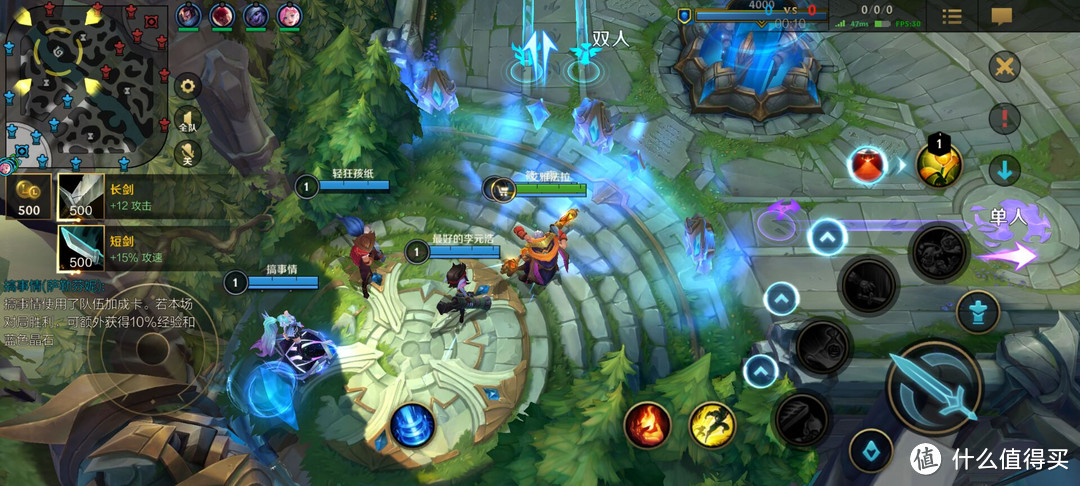人工智能 电影英文-BBC教学英语的《六分钟英语》,我是尼尔
Hello. This is 6 Minute English from BBC Learning English. I’m Neil.
大家好,这里是BBC教学英语的《六分钟英语》,我是尼尔。
And I'm Sam.
我是萨姆。
Do you like cooking, Sam?
萨姆,你喜欢做饭吗?
There's a new recipe I've been trying out - it's for 'frosted oysters'.
我一直在尝试一种新食谱——“起霜牡蛎”。
Frosted oysters?! Sounds… unusual.
起霜牡蛎?!听起来……很不寻常。
How do you make it?
你怎么做这道菜?
Well, you take a pound of chicken, then some cubed pork and half a crushed garlic.
嗯,拿一磅鸡肉,再来一些猪肉块和半头蒜末。
Eh? I thought you said it was for 'frosted oysters', whatever they are.
嗯?我记得你说这是准备做“起霜牡蛎”的,不管那是什么。
Yes, that's right.
是的,没错。
Now heat it up until boiling and serve with custard.
现在把它加热至沸腾,和蛋奶沙司一起食用。
Ugh, that sounds disgusting!
呃,听起来真恶心!
Who on earth told you that recipe?
究竟是谁告诉你那个食谱的?
It's not 'who' told me, Sam, but 'what'.
不是“谁”告诉我的,萨姆人工智能 电影英文,而是“什么”告诉我的。
In fact, that recipe was made by computers using artificial intelligence, or AI,
事实上,这个食谱是由使用人工智能(简称AI)的电脑做出来的,
which is the topic of today's programme.
而人工智能正是今天节目的主题。
In real life, AI is making huge progress - from car satnavs to detecting cancer cells.
在现实生活中,人工智能正在取得巨大进步——从汽车的卫星导航系统到探测癌细胞。
But as you can see from that revolting recipe, things don’t always go according to plan.
但从那个令人作呕的食谱中你可以看出,事情并不总是按计划进行。
So, just how intelligent is artificial intelligence?
那么,人工智能到底有多智能呢?
I mean, it definitely needs some cooking lessons!
我的意思是,它绝对需要上一些烹饪课!
Right. AI is not as intelligent as we tend to think.
是的。人工智能并不像我们想象的那么智能。
AI programmes use artificial brain cells to roughly imitate real brain cell activities,
人工智能程序使用人造大脑细胞来大致模拟真实大脑细胞的活动,
but they're still a long way behind human levels of intelligence.
但它们仍远远落后于人类智力水平。
And that's my quiz question.
那就是我的测试问题。
In terms of brain cell count, what level of intelligence is AI currently working at?
就大脑细胞数量而言,人工智能目前发挥的智能水平有多高?
Is AI as smart as: a) a frog b) an earthworm or c) a bumblebee?
是像a)青蛙,b)蚯蚓,还是c)大黄蜂?
Well, I don’t think any of those are good cooks either, to be honest.
好吧,说实话,我觉得它们都不是好厨子。
But I’ll say c) a bumblebee, because at least they can make honey!
我选c)大黄蜂,因为它们至少能酿造蜂蜜!
Nice guess, Sam.
挺会猜呀,萨姆。
We'll find out the answer later.
稍后我们将揭晓答案。
But first let’s find out more about how AI misunderstandings like the oyster recipe can happen.
但首先让我们更多了解一下人工智能理解错误是如何发生的,比如牡蛎食谱。
Janelle Shane is the author of 'You Look Like a Thing and I Love You',
简妮尔·沙恩是《你看起来像个东西,我爱你》一书的作者,
in which she tells her amusing experiences and bizarre experiments with AI.
她在书中讲述了自己和人工智能之间的有趣经历及怪异实验。
You Look Like a Thing and I Love You – that's a strange title for a book, Neil.
你看起来像个东西,我爱你——这个书名真奇怪,尼尔。
Yes. It’s another example of AI miscommunication.
是的。这是人工智能理解错误的另一个例子。
The book title is what a AI produced when asked to write chat-up lines
当被要求写出搭讪语时,人工智能给出了这本书的名字。
– remarks men and women make to start up a conversation with someone they don’t know but find attractive.
搭讪语是人们和他们不认识但觉得有吸引力的人进行交谈时所说的话。
Here she is talking to the BBC World Service programme More or Less:
这是她在BBC全球服务节目More or Less中谈到的:
So 'machine learning' is what most programmers mean when they say 'AI'.
所以大多数程序员所说的“人工智能”就是指“机器学习”。
In the programme that we're used to,
在我们惯用的程序中,
if you want to have a computer programme solve a problem,
如果你想让一个计算机程序解决一个问题,
you have to have a human programmer write down exhaustive step-by-step instructions on how to do everything.
你就必须让一个人类程序员详细写下完成每件事的逐步指令。
But with 'machine learning' you just give it the goal,
但是通过“机器学习”,你只需要设定目标,
and then the programme figures out via trial and error how it's going to solve that problem.
然后程序就会通过反复试验找出解决问题的方法。
So even though we're talking about machines learning for themselves,
所以即使我们谈论的是机器自我学习,
there still need to be humans involved at the start of the journey.
但在这个过程开始时,人类仍需参与其中。
This human teaching is done by computer programmers
这种人类教学是由计算机程序员完成的
– people who write, or code, the computer programmes used by AI.
——他们编写或编码人工智能所使用的计算机程序。
Right. These programmers write algorithms – a set of rules or procedures to be followed in problem-solving exercises.
没错。这些程序员编写算法——在问题解决演算过程中要遵循的一组规则或程序。
So, for example, the AI that wrote that oyster recipe read thousands of other recipes before coming up with its own version.
例如,写出那个牡蛎食谱的人工智能,在想出自己版本的食谱之前,阅读了成千上万的其它食谱。
In other words, Artificial intelligence uses a process of trial and error
换句话说,人工智能利用反复试验这个过程
– repeating the same task over and over until finding the most successful way.
一遍又一遍重复相同的任务,直到找到最成功的方法。
Only in the case of the oyster recipe, there was more 'error' than 'trial'!
只是就牡蛎食谱而言,“错误”多于“试验”!
Well, according to Janelle Shane, we can learn a lot about something by seeing how it goes wrong.
好吧,根据简妮尔·沙恩的说法,我们可以通过观察某事如何出错来学到很多东西。
Here she is, talking about an AI which had been told to solve maths problems:
这是她在谈到一个要解决数学问题的人工智能时所说的:
It seemed to be that it was getting scored on how many wrong answers it got,
它似乎是根据错误答案个数得出的分数,
and it was supposed to be minimising the number of wrong answers,
它本应该将错误答案的数量减到最少,
and just by a stroke of luck as part of its trial and error flailing around,
部分反复试验侥幸发生疯狂跳转,
one of the flails it did accidentally deleted the solutions list,
其中之一意外删除了解决方案列表,
and then it and everybody else got a perfect score.
然后它和其他所有人就得了满分。
So, AIs learn by minimising their errors – reducing them as much as possible.
因此,人工智能通过将错误减到最少来学习——尽可能地减少错误。
And sometimes, these algorithms only discover the right answer by a stroke of luck
有时,这些算法只能侥幸找到正确答案
– when something unexpected happens by good luck or chance.
——侥幸是说一些意外之事刚巧或碰巧发生。
It seems to me that they’re not so intelligent after all!
在我看来,人工智能毕竟不是那么智能!
Well, let’s settle it once and for all by answering today’s quiz question.
好吧,让我们通过回答今天的问题来马上解决。
Remember I asked you how intelligent AI was in terms of brain cell count,
记得我问过你:就大脑细胞数量而言,人工智能有多聪明?
and you said, as intelligent as…
你说,和谁一样聪明?
I said c) a bumblebee.
我说是c)大黄蜂。
Well, here's Janelle again with the answer…
好的,这是简妮尔再次谈到的,她给出了答案……
If you're looking at rough computing power,
如果你说的是粗略计算能力,
the algorithms we're working with are probably somewhere around the level of an earthworm.
那我们使用的算法水平可能约在蚯蚓的水平。
So, the correct answer was b) as clever as an earthworm!
所以,正确答案是b)和蚯蚓一样聪明!
No wonder AIs can't cook!
难怪人工智能不会做饭!
Or take a maths test without cheating!
也无法在不作弊的情况下参加数学考试!
In this programme we've been looking at artificial intelligence, or AI,
在这个节目中人工智能 电影英文,我们一直在讨论人工智能(简称AI),
and seeing how programmers – that's people who write instructions for computers to follow, create algorithms
以及了解为计算机编写遵循指令的程序员如何创建算法
– sets of rules used in problem-solving.
——用于解决问题的成套规则。
AI learns through trial and error – repeating the same activity again and again until discovering the best way,
人工智能通过反复试验来学习——一遍又一遍重复相同的活动,直到找到最佳方法,
and minimising, so reducing as much as possible, the number of errors it makes.
以及将所犯错误最小化,也就是尽可能减少所犯错误数量。
And success can be the result of a stroke of luck, when something unexpected happens purely by chance,
成功可能是侥幸的结果,那是指一些意想不到的事情纯粹是偶然发生的,
although so far that hasn’t helped AIs to write good chat-up lines
然而到目前为止,那并没有帮助人工智能写出好的搭讪语
– the flattering remarks people make to get to know someone they find attractive.
——人们为了去了解他们觉得有吸引力的人而说的吹捧话。
And AIs don’t know much about cooking oysters either!
而人工智能也不太知道如何做牡蛎!
That’s all from us from this programme.


 上一篇
上一篇 







